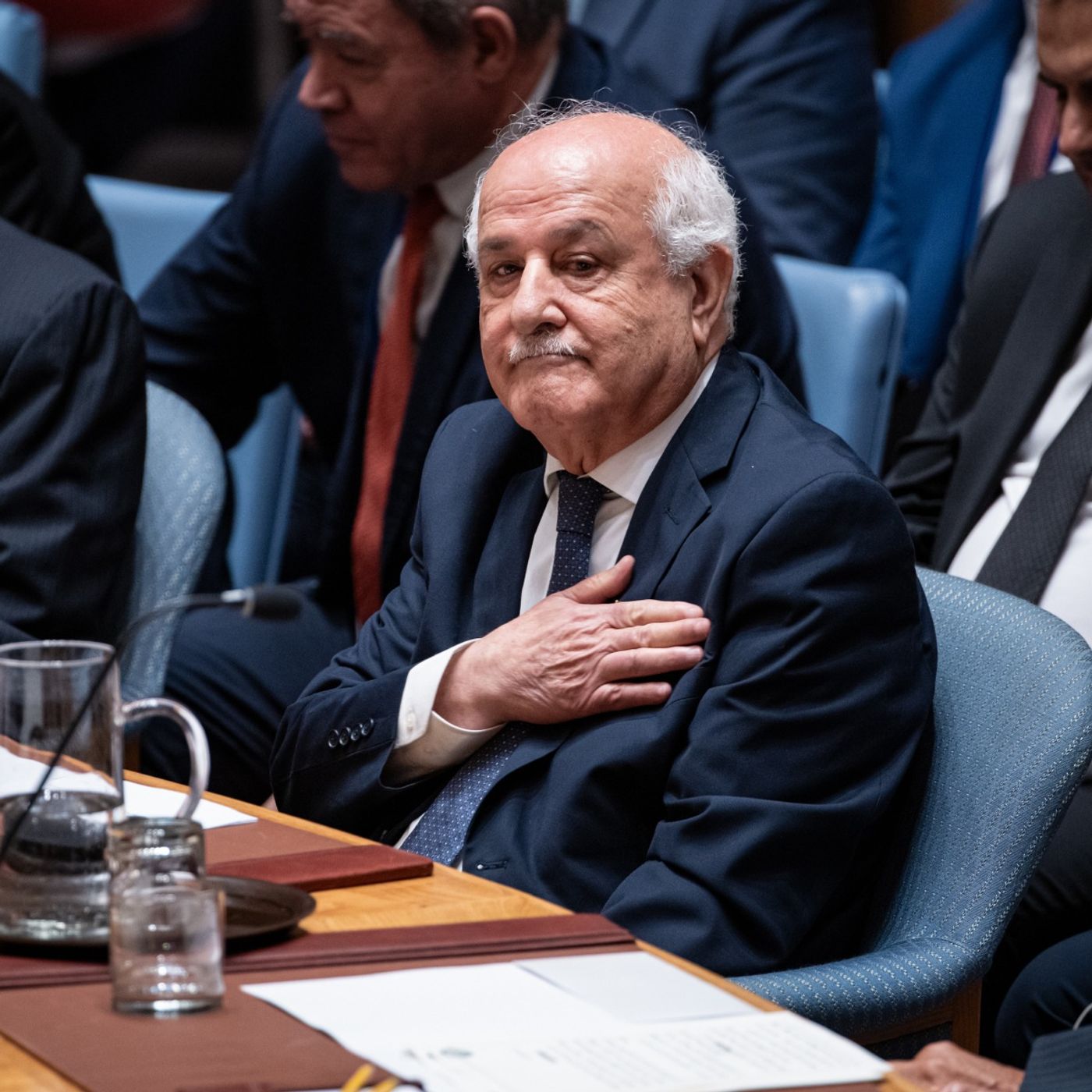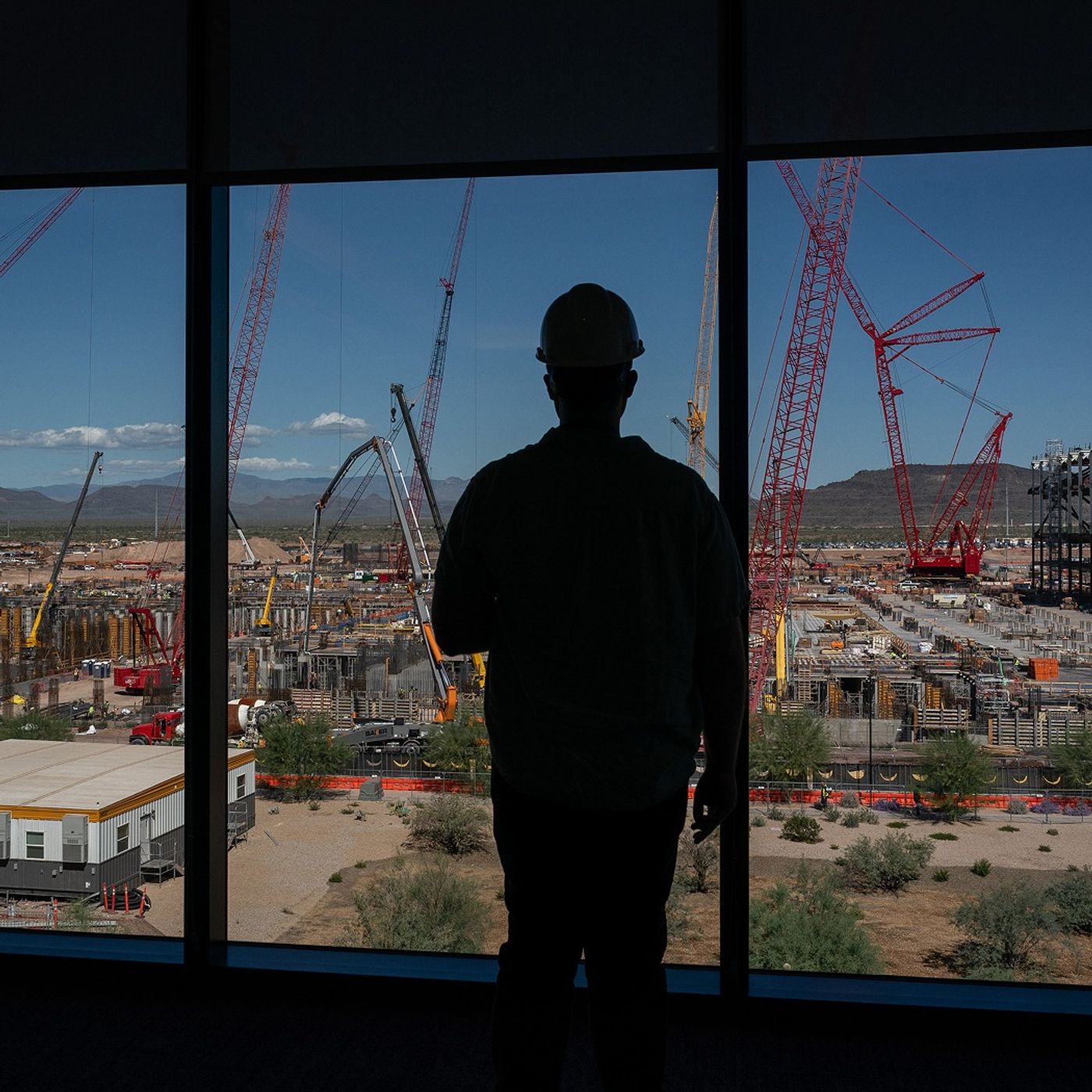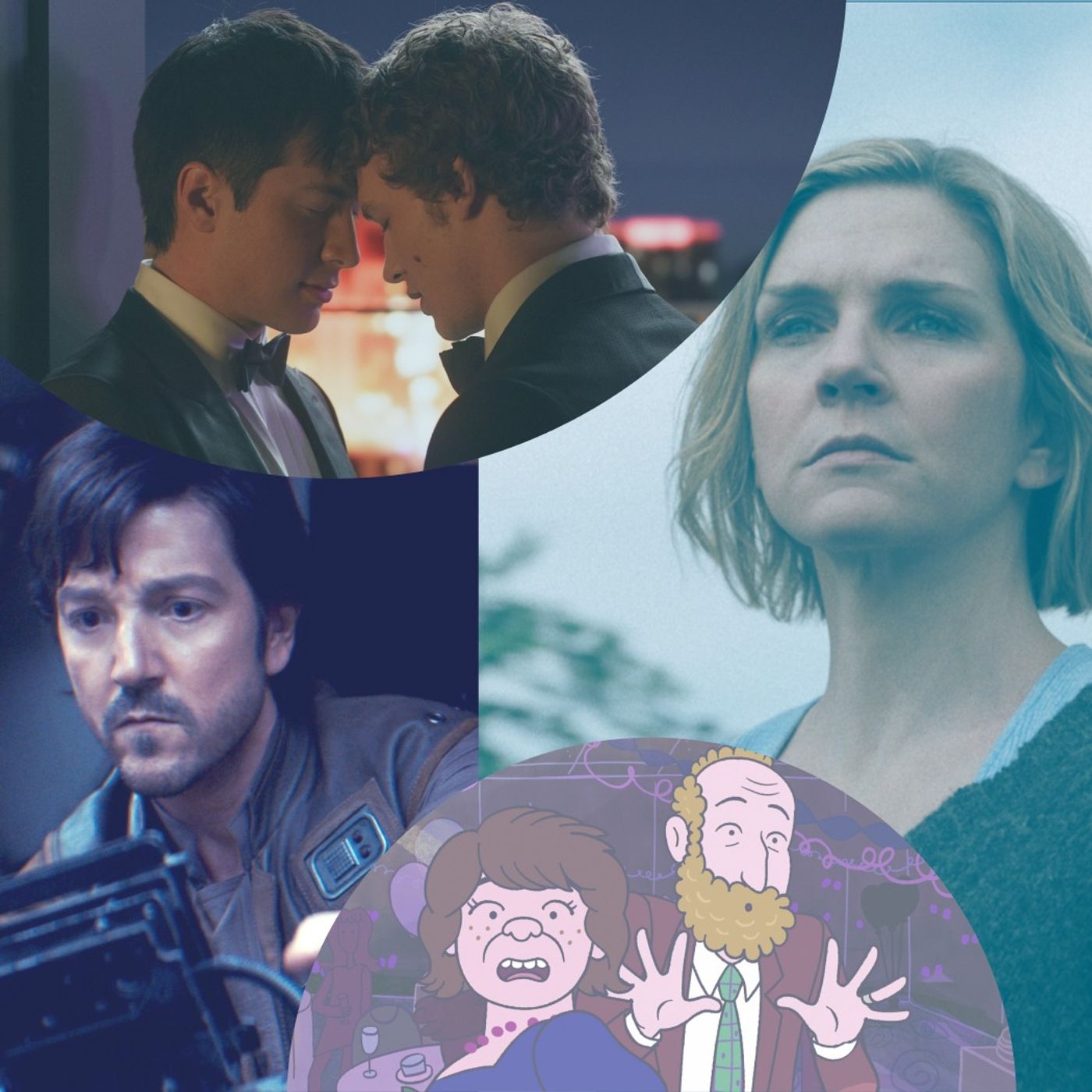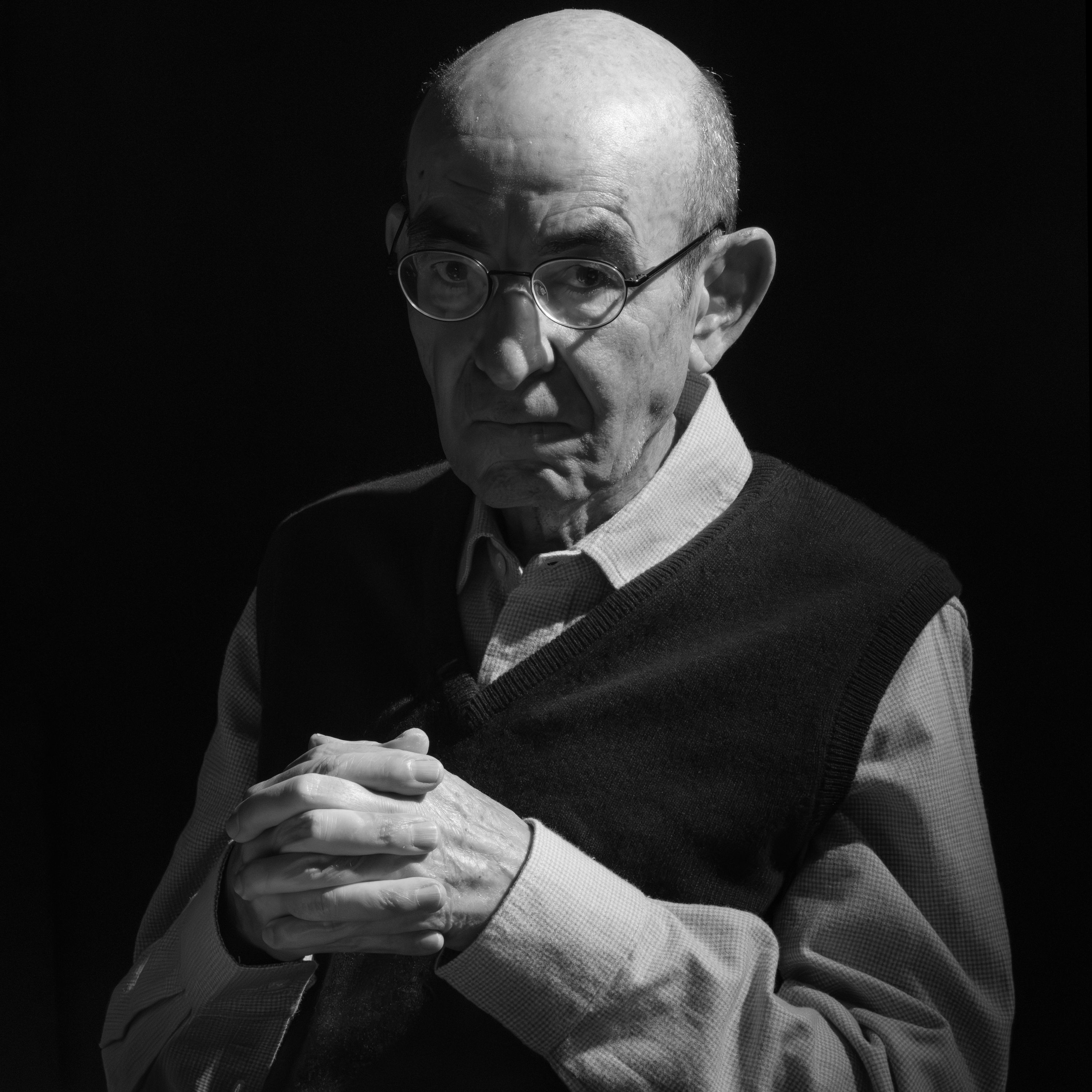The Question of Palestinian Statehood
Jessica Cheung, a producer for “The Daily,” speaks to Riyad Mansour, the Palestinian ambassador to the U.N., about what Palestinian statehood means to him.
Then, Mark Landler, the London bureau chief of The New York Times, discusses what the recognition means without the support of the United States and Israel, which was underscored in their new peace plan.
Press play and read along
Transcript
Speaker 1 This podcast is supported by Planned Parenthood Federation of America.
Speaker 1 Across the U.S., lawmakers are pushing hundreds of bills to take away sexual and reproductive health care, including abortion, birth control, and gender-affirming care.
Speaker 1 The health and lives of millions of people are at risk, especially women, people of color, rural communities, and people with low incomes.
Speaker 1 Planned Parenthood Federation of America is working so that everyone, everywhere, can get the care they need. Their work depends on supporters like you.
Speaker 1 Donate now at plannedparenthood.org slash defend.
Speaker 3 From the New York Times, I'm Rachel Abrams, and this is the daily.
Speaker 3 It's been nearly two years since Hamas carried out its deadly attacks on Israel on October 7th, and Israel began its bombardment of Gaza.
Speaker 3 Since then, the humanitarian crisis in Gaza has only worsened. and Hamas is still holding hostages.
Speaker 3 But the images of Palestinian suffering have have lately fueled international pressure on Israel to end the war and pushed Western powers to recognize a Palestinian state.
Speaker 3 This culminated last week at the United Nations, where a group of world leaders formally recognized Palestinian statehood, which deepened Israel's isolation.
Speaker 3 But just a week later, a new peace plan unveiled by President Trump and Israeli Prime Minister Benjamin Netanyahu underscored the reality that Palestinian statehood is a long way off.
Speaker 3 Today, the optimism and the fury of this moment and what this recognition actually means.
Speaker 3 It's Friday, October 3rd.
Speaker 3 Jess Chung, you are one of the producers on our show.
Speaker 3 And last week you spent time on the ground at the UN to document this historic moment in which the question of Palestinian statehood was really front and center.
Speaker 3 So talk to us a little bit about what you were there to
Speaker 4 Well, over the past two years, the international community has grown increasingly frustrated with Israel's tactics in the war.
Speaker 4 And what we've seen recently is a push by a number of Western countries like the UK, France, Australia, and Canada to formally recognize a Palestinian state as a way to put pressure on Israel to end the war.
Speaker 4 Now, up until this point, over 140 countries had already done this. But what's interesting about this new group of countries is that they're traditionally Israeli allies.
Speaker 4 That infuriates Israel and the U.S., who say what this is going to do is reward Hamas for its terrorism on October 7th.
Speaker 4 But regardless, 10 countries were planning to come to the UN General Assembly last week to stand up and say for the first time, we recognize the Palestinian state. So it was going to be a huge moment.
Speaker 4 And I wanted to capture that.
Speaker 4 Particularly through the eyes of this one guy, Riyadh Mansoor.
Speaker 5 It was a pleasure to meet you. Pleasure to meet you.
Speaker 4 Mansoor is the Palestinian ambassador to the UN, and he's worked toward this moment for pretty much his entire life.
Speaker 5 I have beautiful memories here.
Speaker 4 I meet him in the gardens of the UN in midtown Manhattan. This was all before the big meeting was set to take place.
Speaker 4 He's dressed in a suit. He's got a small Palestinian flag pinned on his lapel.
Speaker 5 And how long have you been serving in this role?
Speaker 5 In September, 20 years straight.
Speaker 4 20 years straight. Mansoor is in his late 70s, and he's been representing Palestinians here for decades.
Speaker 5 For me, you know, I was working for these things from a long time ago. How does it feel to have these countries now on board? It feels very great.
Speaker 5 We hope from the few days to come that the international community is making a turn.
Speaker 5 A turn where now having the state of Palestine a reality.
Speaker 5 So we are marching in the direction of peace and justice.
Speaker 5
Thank you so much and I hope to follow you throughout the week. Okay, very good.
Thank you. Thank you so much.
Thank you so much.
Speaker 5 We'll touch face.
Speaker 4 Because he's been here for so long. Mansoor seems to be a kind of fixture in this place.
Speaker 4 He scurries around these halls, doing a seemingly endless amount of press gaggles,
Speaker 4 shaking a seemingly endless amount of hands,
Speaker 4 meeting a seemingly endless amount of diplomats.
Speaker 4 But sitting down with him, I realized that the UN has long been a fixture in his life too.
Speaker 5 I was born in Palestine, a child of a Palestinian refugee family.
Speaker 4 Monsour spent his childhood in Ramallah, in the West Bank.
Speaker 5 And we lived in caves and in the valleys before Onorwa came to the picture.
Speaker 4 His family was among the the hundreds of thousands of Palestinians who were expelled or fled from their homes amid the wars surrounding the creation of the State of Israel in 1948, a period known to Palestinians as the Nakba.
Speaker 4 And the UN provided food, schools, and medical care to those displaced Palestinian families, including Monsours.
Speaker 5 Do you have an early memory about how
Speaker 5 you understood that Palestinians didn't have a state of your own? I don't know exactly what in those days the idea of statehood was.
Speaker 5 What was in our mind is: we want to return to our towns, to our villages, to our homes. Like the key for our house in Palestine, from the town where we were expelled from,
Speaker 5 was hanging inside the house. So that's a symbol of returning to it.
Speaker 4
In the 1950s, Mansoor's father emigrated to the U.S. He took a job as a steel worker in Youngstown, Ohio.
Mansoor was around 17 years old when he followed his father here.
Speaker 4 He went on to study at Youngstown State.
Speaker 5 And I was influenced by the thoughts of the moment.
Speaker 4 Throughout college, he was politically active, marching for civil rights against the war in Vietnam, and seeing those movements create real change around him.
Speaker 4 He started speaking out against Israel's occupation in the West Bank, in Gaza, trying to raise awareness of Palestinian rights.
Speaker 5 It wasn't easy, it was not popular, but I was young.
Speaker 4 And then, in 1974, Palestinian leader Yasser Arafat was invited to speak at the UN for the first time, where he made an appeal to the international community for a Palestinian state.
Speaker 5 I was a student, so I brought three.
Speaker 4 Mansoor organized three buses of people to drive from Ohio to New York for the event.
Speaker 5 And I was among the lucky ones to go to the United Nations to shake hands with Chairman Arafat after he gave his famous speech. So that was the first time that I entered the UN.
Speaker 4 Palestinians were talking about statehood and what it would mean.
Speaker 5 Is this what we want? Is it one state, two state?
Speaker 4 And a decade later, Mansoor would take a job at the UN and keep pushing for the same goal.
Speaker 5 And that journey took a long time, the 80s, the 90s, then the Oslo Agreement.
Speaker 4 For years, Mansoor worked through cycles of Palestinian intifadas and militancy, Israeli retaliation and expanding settlements, new wars, new ceasefires, new peace agreements, like the Oslo Accords, which were seen as the closest the international community came to resolving the conflict.
Speaker 4 But in the end, they didn't achieve what they set out to.
Speaker 5 You see, we went through cycles.
Speaker 5 Hopes, then they go down.
Speaker 5 The same thing after October 7th.
Speaker 4 When Hamas, in a surprise attack, killed 1,200 people and kidnapped about 250 others. Pictures emerge of the destroyed kibbutzim.
Speaker 4
Videos of hostages being carried away on the backs of motorcycles and trucks driven by militants. Stories of people shot in their homes and trapped in burning buildings.
All of it shocked the world.
Speaker 5 There were sympathies in the first few days with the families of the victims as a result of October 7.
Speaker 4 But after Israel launched the war against Hamas in Gaza, as that war entered its second year with more than 60,000 Palestinians dead and the humanitarian situation worsening, People around the world also saw those pictures and heard those stories, including Mansoor, who described what he was seeing in Gaza to to the United Nations Security Council this spring.
Speaker 5 The images of mothers embracing their
Speaker 8 motionless bodies, caressing their hair,
Speaker 8 talking to them,
Speaker 9 apologizing to them
Speaker 8 is unbearable. How could anyone
Speaker 8 tolerate
Speaker 5 this sort of
Speaker 4 It was around that time that Mansour said he felt things begin to shift, and I asked him about that.
Speaker 5 It created a tremendous amount of support and empathy and solidarity with the Palestinian people.
Speaker 5 Now, the international community, enough is enough. We're not going to continue going through cycles up and down, up and down.
Speaker 5 This time, we're going to stop this war and allow the two-state solution to become a reality. This is the moment.
Speaker 7 It's for
Speaker 7 Jeff
Speaker 7 that France recognizes today
Speaker 7 the Palestinian state.
Speaker 10 I stand before you today, beneath the emblem of the United Nations, to confirm the historic decision of the British government to recognize the state of Palestine.
Speaker 7
Portugal formally recognized the state of Palestine. A two-state solution.
Australia recognized the state of Palestine. Canada recognizes the state of Palestine.
Belgium announces the recognition.
Speaker 7 of the state of Palestine. And that is why Ireland last year, with Spain, Norway and Slovenia, recognized the state of Palestine.
Speaker 7 The systematic decimation of Gaza. The use of food as a weapon of war.
Speaker 10 Children dying of starvation while food rots at the border.
Speaker 7
The killing of tens of thousands of civilians. Tens of thousands of civilians.
More than 65,000 people killed in Gaza. Most of them women and children.
Horrifically. more than 20,000 of them children.
Speaker 7 And hundreds of our own humanitarian aid workers.
Speaker 10 Aid workers killed journalists journalists killed doctors targeted and killed we have reached a point where what has been credibly described as a genocide is being carried out in front of the eyes of the world statehood is the inalienable right of the palestinian people and the two states is the only path to security and lasting peace for israelis and palestinians alike
Speaker 4
Israel denies many of these allegations and strongly refutes the accusation of genocide. The Israeli delegation didn't come to the meeting.
Their seats stayed empty.
Speaker 5 Today felt so great. I think that my tears were coming down on my face.
Speaker 4 But Monsor was moved to tears.
Speaker 5 It's a historic day.
Speaker 5 We are climbing a very tall mountain and we are approaching the top of the mountain.
Speaker 4 Throughout the week while I was following Mansoor, I kept asking him why this moment felt so important.
Speaker 4
After all, over 140 countries had already recognized Palestine. So isn't this week largely a symbolic gesture? He kept holding up this analogy.
apartheid in South Africa.
Speaker 4 He said much of the world also condemned apartheid for decades, but it was Western countries putting pressure on South Africa that helped end apartheid.
Speaker 4 So Mansoor says he sees this moment as a turning point for statehood.
Speaker 4 But this moment has also been controversial.
Speaker 5 What do you say to those who see this recognition as rewarding Hamas for its terrorism?
Speaker 4 I asked Mansoor what he thought about the fact that some people view all this formal recognition as a reward to Hamas for the atrocities on October 7th.
Speaker 4 Mansoor told me he thinks that's the wrong way to look at it.
Speaker 5 Not only us, but almost all the countries do not agree with that assessment. Nobody would believe that France, UK,
Speaker 5 Canada, Australia are rewarding Hamas. That doesn't make sense.
Speaker 5 All of them, they were doing it as an investment in peace and harmony.
Speaker 4 Mansour said Palestinian statehood is not a prize for attacking Israel.
Speaker 5 He told me, it's about the legitimate rights of the Palestinian people to have a state of their own.
Speaker 4 And that was made clear as the following days unfolded.
Speaker 3 After the break, my colleague Mark Landler on what this recognition means without the support of Israel and the United States.
Speaker 2 Your home is an active investment, not a passive one. And with Rocket Mortgage, you can put your home equity to work right away.
Speaker 2 When you unlock your home equity, you unlock new doors for your family, renovations, extensions, even buying your next property.
Speaker 2
Get started today with smarter tools and guidance from real mortgage experts. Find out how at rocketmortgage.com.
RocketMortgage LLC, licensed in 50 states, NMLS Consumer Access.org, 3030.
Speaker 2
We all have moments when we could have done better. Like cutting your own hair.
Yikes. Or forgetting sunscreen so now you look like a tomato.
Ouch. Could have done better.
Speaker 2
Same goes for where you invest. Level up and invest smarter with Schwab.
Get market insights, education, and human help when you need it. Learn more at schwab.com.
Speaker 2 With real-world experience across a range of industries, Deloitte helps recognize how a breakthrough in aerospace might ripple into healthcare, how an innovation in agriculture could trickle into retail or biotech or even manufacturing.
Speaker 2 Is it clairvoyance? Hardly.
Speaker 2 It's what happens when experienced, multidisciplinary teams and innovative tech come together to offer clients bold, new approaches to address their unique challenges, helping them confidently navigate what's next.
Speaker 2 Deloitte together makes progress.
Speaker 3 Mark, you have covered the story for decades, the Israel-Palestinian conflict and the fight for Palestinian statehood.
Speaker 6 Yes, I have.
Speaker 3 Which is why we're turning to you to help us understand what happened not just last week at the UN, but also earlier this week when Israeli Prime Minister Benjamin Netanyahu visited the White House, where he stood next to President Trump as President Trump presented this new plan to end the war.
Speaker 3 I want to start with the UN, where the overwhelming support for Palestinian statehood infuriated Netanyahu. Can you walk us through what happened that day?
Speaker 8 The Assembly will hear an address by His Excellency Benjamin Netanyahu, Prime Minister of the State of Israel.
Speaker 6 Well, after these countries stood up and recognized Palestinian statehood, Prime Minister Benjamin Netanyahu gave his response.
Speaker 6 Ladies and gentlemen, he took the dais and railed against these moves towards recognition.
Speaker 8 This week, the leaders of France, Britain, Australia, Canada, and other countries unconditionally recognized a Palestinian state.
Speaker 8 They did so after the horrors committed by Hamas on October 7th.
Speaker 6 Netanyahu's argument, in short, is that recognizing Palestinian statehood is a reward for Hamas.
Speaker 8 You know what message the leaders who recognized the Palestinian state this week sent to the Palestinians?
Speaker 8 It's a very clear message.
Speaker 8 Murdering Jews pays off.
Speaker 6 That what the West is basically saying to Hamas is you can inflict terror on Israeli citizens and in our desire for peace, we're going to be willing to give you this very symbolic concession.
Speaker 8 The Palestinians, they don't believe in this solution. They never have.
Speaker 8 They don't want a state next to Israel. They want a Palestinian state instead of Israel.
Speaker 6 And Netanyahu's argument is what we should really be doing is supporting Israel in its effort to crush Hamas, to remove Hamas from the equation altogether, and to back Israel to the hilt, fighting for the return of the hostages and supporting its military campaign in Gaza, rather than heading down what he views as this cul-de-sac of recognizing a Palestinian state.
Speaker 3 I watched Netanyahu's speech, and I was really struck by how many representatives from other countries literally walked out of the hall as he took the stage.
Speaker 3 And yet, despite that, he still had this defiant tone as he talked, which I think really underscored the fact that Israel, even as it's become more and more isolated on the world stage, Netanyahu has continued to dig his heels in.
Speaker 3 And that was very evident during his speech at the UN.
Speaker 6 Yes, I think that's right. And I think he did it for one critical reason.
Speaker 6 For all those countries that oppose Israel and are critical of Israel, he knows he has one country that is steadfastly behind Israel, and that's the United States and particularly President Donald Trump.
Speaker 6 He came out against recognition of a Palestinian state. He echoed Netanyahu's argument that this would be a reward for terrorism, a reward for Hamas.
Speaker 6 And he did so even as there is some polling that suggests that the American public is far more divided on this issue.
Speaker 6 After two years of harrowing images of war from Gaza, more Americans are beginning to question unstinting support for the state of Israel, but not the president himself.
Speaker 6 But as long as Trump continues to support Netanyahu, continues to stand behind him in his military campaign in Gaza, I think Netanyahu feels that he has the latitude and the license to be as aggressive as he needs to be.
Speaker 3 Obviously, the U.S. is Israel's strongest ally, but on the question of Palestinian statehood, which of course is what Netanyahu is so angry about, why does the U.S.'s position matter so much?
Speaker 6
Well, the U.S. is so important because it still holds a veto in the United Nations Security Council.
So as long as the U.S.
Speaker 6 is totally behind Israel, there is a limit to what the Palestinians can accomplish. I think it's also widely understood that without U.S.
Speaker 6 buy-in, the whole notion of a two-state solution really falls apart. The U.S.
Speaker 6 has always been viewed as the central player in the question of a peace settlement between the Israelis and the Palestinians.
Speaker 6 That hasn't changed in the last few years, even as these countries have moved toward recognizing Palestine. So while it's a very positive step for the Palestinians, without the U.S.
Speaker 6 joining in, it still has its limits.
Speaker 9 This is a big, big day, a beautiful day, potentially one of the great days ever in civilization.
Speaker 6 And so you saw that critical American role on display just this past Monday when President Trump welcomed Prime Minister Netanyahu back to the White House.
Speaker 9 So today is a historic day for peace and Prime Minister Netanyahu and I have just concluded an important meeting on many vital issues, including
Speaker 6 they came out and faced the TV cameras and presented a plan for Gaza, a Trump plan to end the war in Gaza.
Speaker 9 This proposal calls for the release of all remaining hostages immediately, but in no case more than 72 hours.
Speaker 6 It called on Hamas to give up their weapons, return the hostages immediately. They would have no future role in the governance of Gaza.
Speaker 6 Israel would remain a very strong military presence around the enclave. So really very much a pro-Israel plan for Gaza.
Speaker 3 With terms that we should note, Hamas has consistently said it would never accept.
Speaker 6 Absolutely, that Hamas has ruled out unilaterally. I should say, though, that our reporting shows many Gazans want Hamas to accept this deal.
Speaker 6 although a lot of people think it's a real long shot that Hamas ever would.
Speaker 3 And did this plan say anything explicitly about statehood?
Speaker 6 Well, it acknowledged that statehood was an aspiration of the Palestinian people, and it suggested that one could envision the creation of a Palestinian state, subject to a number of conditions, including a reform of the Palestinian authority.
Speaker 9 I think while we're waiting for signatures and and waiting for approvals from a lot of different countries that are involved in this, we probably shouldn't take questions.
Speaker 6 But it left the timeline and the roadmap for all of this completely unclear.
Speaker 5 Thank you very much, Adam.
Speaker 5 Thank you.
Speaker 6 And interestingly, the plan got, in the immediate aftermath, some pretty widespread support among Arab countries, but also among European countries, the very countries who, a week earlier, had formally recognized a Palestinian state.
Speaker 3 What do we make of that? The fact that all these European countries had come out in support of a Palestinian state and now are supporting a plan that seems to heavily favor Israel?
Speaker 6 I think really what this shows you is the desire among European countries and Arab countries for the U.S. to remain engaged in the process.
Speaker 6 I think the mere fact that they saw President Trump stepping forward with a plan, with his name on it, willing to be heavily engaged and visibly engaged for them was a huge positive.
Speaker 6 I think they feel that they can work out the details, many of which they may not particularly like as the process unfolds. But what's vital is for Trump to be involved.
Speaker 6 So the image of him standing next to Netanyahu, saying he wants to play this role, that was worthy of their support. And that's why I think he got the kind of show of support that he did
Speaker 6 and then immediately after his meeting with president trump prime minister netanyahu speaking to a domestic audience said in hebrew
Speaker 6 don't worry this is never going to happen
Speaker 3 it sort of feels like netanyahu is kind of talking out of both sides of his mouth right because on the one hand he gets up at this press conference and he unveils this plan that gives a cursory nod to the possibility of statehood if like 15 unlikely things happen first.
Speaker 3 And then in Hebrew, he's basically saying, over my dead body.
Speaker 3 And whatever he wants to do, thus far, he's basically had the backing of the United States, even as there's been this growing list of countries that say they support Palestinian statehood.
Speaker 3 And so I wonder, where does all of this
Speaker 3 leave the prospect of a Palestinian state in your mind?
Speaker 6 Well, you're right to say that Netanyahu was talking out of both sides of his mouth. And one could say, in fact, he's been doing that for many years on this topic.
Speaker 6 If you go back in time, there was a moment when Netanyahu claimed he supported a two-state solution, as did a lot of mainstream Israeli leaders. Though it must be said that if you look at...
Speaker 6 Netanyahu's actions over the years, he's really consistently undermined the prospect for a Palestinian state, whether it is expanding Jewish settlements in the West Bank or colluding with Hamas in the governance of Gaza, which had the effect of splitting the Palestinian movement in two, his actions have never been geared toward allowing or encouraging the creation of a Palestinian state.
Speaker 6 Now, in some senses, he's being clearer.
Speaker 6 He's saying quite publicly that at the moment he thinks a Palestinian state is a dire threat to Israel's security, but he's not willing to completely defy an American president, especially Donald Trump, when he includes this kind of fairly wishy-washy language in his plan for Gaza.
Speaker 6 So I think from Netanyahu's point of view, he sees this as something he's simply going to have to live with. And perhaps he's also confident that Hamas will never accept it anyway.
Speaker 6 So he won't be forced to live with anything that's in this plan anyway.
Speaker 3 Mark, our colleague Jess earlier spoke to Riyadh Mansoor, the Palestinian ambassador to the UN, and he sounded so optimistic about the real possibility of a Palestinian state.
Speaker 3 And I wonder, just listening to everything that you've outlined, do you think that that optimism is misplaced?
Speaker 6 Well, Riyadh Mansoor is looking at this from his particular vantage point as a diplomat who has spent years, if not decades, lobbying countries to recognize a Palestinian state.
Speaker 6 And in that, he and they have been remarkably successful.
Speaker 6 You now have 150-some countries that recognize a Palestinian state, and they include some of the most important and powerful countries in the world.
Speaker 6 So from that point of view, the Palestinians have been remarkably successful. But in the nuts and bolts sense of building a state, I think it's a much different story.
Speaker 6 You have in Gaza a state of war and an enclave that's largely in ruins, where Gaza health officials put the death toll at more than 65,000.
Speaker 6 In the West Bank, you have a territory that's been carved up by the Israelis into an ever-expanding set of Jewish settlements.
Speaker 6 You have a Palestinian authority whose control and credibility is in question.
Speaker 6 So from the point of view of a viable and functioning state, I think the Palestinians are further away from that than they've been for a very long time.
Speaker 3 Mark, thank you so much.
Speaker 6 Thanks, Rachel.
Speaker 3 We'll be right back.
Speaker 2 Support for this podcast comes from GoodRX. GoodRX can keep your family protected this cold and flu season with discounts on flu shots.
Speaker 2 And if you do get sick, GoodRX offers savings on cold and flu meds. GoodRX compares prescription prices and instantly finds discounts of up to 80%.
Speaker 2
GoodRX is not insurance, but it works with or without it and could beat your copay price. Save on flu shots plus everyday medications.
With GoodRX, go to goodrx.com/slash the daily.
Speaker 2 The critically acclaimed series, The Diplomat, returns for its third season, starring Carrie Russell as Kate Weiler. Now the president is dead.
Speaker 2 Kate's husband, Hal, may have inadvertently killed him, and Grace Penn is the leader of the free world. None of this slows Hal's campaign to land Kate the vice presidency.
Speaker 2 Allison Janey and Rufus Sewell return, and Bradley Whitford joins the cast of the Emmy-nominated drama. Watch The Diplomat October 16th, only on Netflix.
Speaker 2 Your home is an active investment, not a passive one. And with Rocket Mortgage, you can put your home equity to work right right away.
Speaker 2 When you unlock your home equity, you unlock new doors for your family, renovations, extensions, even buying your next property.
Speaker 2
Get started today with smarter tools and guidance from real mortgage experts. Find out how at rocketmortgage.com.
Rocket Mortgage LLC, licensed in 50 states, NMLS ConsumerAccess.org, 3030.
Speaker 3 Here's what else you need to know today.
Speaker 3 A man rammed a car into a crowd and stabbed people outside of a synagogue in Manchester, England on Thursday.
Speaker 3 Two people were killed and three others were seriously injured in what police called an act of terrorism. It happened on Yom Kippur, the holiest day in the Jewish calendar.
Speaker 3 Police said officers shot and killed the suspect only minutes after he began his assault.
Speaker 8 It is a serious incident, I have to say.
Speaker 3 The mayor of Greater Manchester, Andy Burnham, told people to avoid the area where the attack had happened.
Speaker 8 But at the same time, I can give some some reassurance immediately to people that the immediate danger appears to be over and Greater Manchester Police have dealt with it very quickly.
Speaker 3 The attacker was identified by Britain's counter-terrorism police as a British citizen of Syrian descent. Police said investigators were still working to understand the motive behind the attack.
Speaker 3 And on Friday, officials said that one of the victims had been accidentally shot and killed by an officer who responded to the scene.
Speaker 3 And the Food and Drug Administration approved a generic version of the abortion pill mifopristone, making it more easily available at a time when abortion opponents are pressuring the Trump administration to restrict access to abortion pills.
Speaker 3 The approval, issued earlier this week, means that three American companies can now produce mifopristone to terminate a pregnancy.
Speaker 3 Today's episode was reported by Jessica Chung and Lindsey Garrison, Produced by Lindsey Garrison, Jessica Chung, Mooch Sadie, Diana Wynne, and Claire Tennis Getter.
Speaker 3 It was edited by Maria Byrne with help from Paige Cowett. Fact-checked by Susan Lee.
Speaker 3 Music by Pat McCusker and Dan Powell. Engineered by Chris Wood.
Speaker 3 Special thanks to Yara Bayumi, David Helpfinger, David Sanger, and Aaron Boxerman.
Speaker 3
That's it for the Daily. I'm Rachel Rachel Abrams.
See you on Monday.
Speaker 2 In today's fast-changing digital world, proving your company is trustworthy isn't just important for growth, it's essential. That's why Vanta is here.
Speaker 2 Vanta helps companies of all sizes get compliant fast and stay that way with industry-leading AI, automation, and continuous monitoring.
Speaker 2 So whether you're a startup tackling your first SOC2 or ISO 27001 or an enterprise managing vendor risk. Vanta's trust management platform makes it quicker, easier, and more scalable.
Speaker 2 Visit Vanta.com/slash daily to sign up for a free demo today. That's vanta.com/slash daily.





